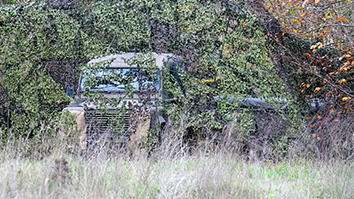Citation
Stehr, MO., Kim, M., Talcott, C. (2010). Toward Distributed Declarative Control of Networked Cyber-Physical Systems . In: Yu, Z., Liscano, R., Chen, G., Zhang, D., Zhou, X. (eds) Ubiquitous Intelligence and Computing. UIC 2010. Lecture Notes in Computer Science, vol 6406. Springer, Berlin, Heidelberg. https://doi.org/10.1007/978-3-642-16355-5_32
Abstract
Networked Cyber-Physical Systems (NCPS) present many challenges that are not suitably addressed by existing distributed computing paradigms. They must be reactive and maintain an overall situation awareness that emerges from partial distributed knowledge. They must achieve system goals through local, asynchronous actions, using (distributed) control loops through which the environment provides essential feedback. Typical NCPS are open, dynamic, and heterogeneous in many dimensions, and often need to be rapidly instantiated and deployed for a given mission. To address these challenges, we pursue a declarative approach to provide an abstraction from the high complexity of NCPS and avoid error-prone and time-consuming low-level programming. A longer-term goal is to develop a distributed computational and logical foundation that supports a wide spectrum of system operation between autonomy and cooperation to adapt to resource constraints, in particular to limitations of computational, energy, and networking resources. Here, we present first steps toward a logical framework for NCPS that combines distributed reasoning and asynchronous control in space and time. The logical framework is based on partially ordered knowledge sharing, a distributed computing paradigm for loosely coupled systems that does not require continuous network connectivity. We illustrate our approach with a simulation prototype of our logical framework in the context of networked mobile robot teams that operate in an abstract instrumented cyber-physical space with sensors.
Keywords: Mobile Robot, Logical Framework, Proof Rule, Strict Partial Order, Knowledge Unit


